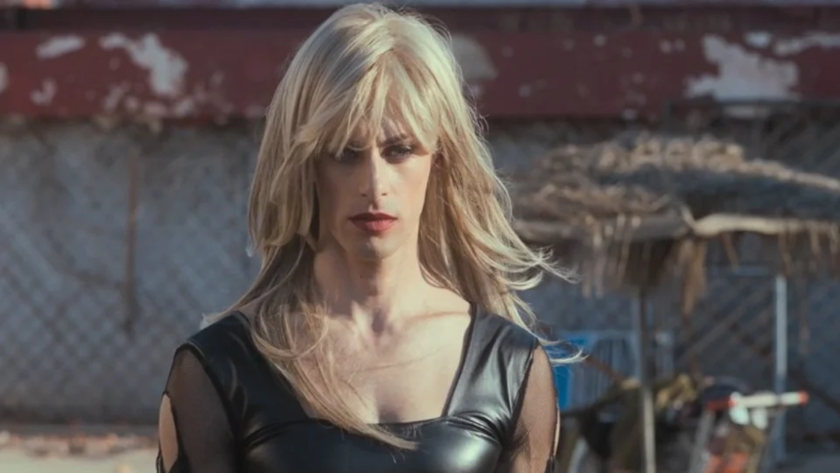Vassilis Kroustallis reviews the first feature by Greek Christos Massalas, Broadway.
There are many forces in play in Christos Massalas' both tender, desolate, and sometimes bombastic 'Broadway', a sweet charade on Athens' desperate but likable and contemporary-looking fellows. Armed with a spice of queer aesthetics (which however won't really support its glamor surface), Massalas still proves that Greek cinema is a factor to reckon with -even outside the Greek Weird Wave circle.
In his carefully lit between open spaces and abandoned theatre buildings, Massalas presents a noirish story -with voice-over narration by its protagonist Nelly (a determined presence by Elsa Lekakou). Nelly is a pole dancer desperate to get away from the job, fittingly knowing Markos, a small-time crook with grey hair and a bittersweet manly appetite (a perfect casting choice and performance by Stathis Apostolou). Markos quickly relocates her into an abandoned Athenian theater ('Broadway'), in which the stage quickly becomes the marital bed for the couple. Other residents include a gay couple, Rudolph (Rafael Papad) and Mohammad (Salim Talbi), and the old 'locksmith' (the veteran Greek actor Hristos Politics). Pickpocketing in downtown Athens is the name of the game for the gang; Nelly will seduce with her dance, while the rest will quietly empty the wallets of enchanted passersby.
The film starts in prison, though, with a comic masturbation scene giving a light (and racier) tone to this otherwise Dickensian (of the 'Oliver Twist' variety) drama. Massalas has undoubtedly a lot to tell about his characters (curiously, not much about the gay couple). We do feel their day-to-day insecurities, and we are ready to welcome a new character, the bandaged Jonas (Foivos Papadopoulos) -who will soon be transformed into the drag queen Barbara for all surviving purposes.
'Broadway' consistently holds a noirish thriller tone, even though the incidents themselves (especially in the two-thirds of the film) seem of small value to get such a treatment; yet, it gets also into queer territory with an all-hilarious drag queens solidarity scene (Almodóvar would approve) and song-and-dance numbers that bring Demy to mind; another Broadway resident, a monkey called Lola, brings both Demy and Fassbinder chills.
This accumulation of elements makes 'Broadway' less counter-culture celebration and more of an intimate look at voices and people who could easily switch places between the mainstream and the underground. The editing (the Oscar-nominated Yorgos Lambrinos of 'The Father) is seamless, and the locations are almost nostalgic in an Athens still trying to find its way beyond the crisis and behind the glamour.
The Jonas/Barbara treatment is developed with ease, exploiting both the glamorous opportunities of a drag queen and the not-so-glamorous tasks she needs to perform. Even with one central character queer-coded, Massalas stills holds fast to a straight romance and a love triangle between Nelly, Markos, and Jonas/Barbara. The result presumably being one of the conventions of the film genre he won't easily part with. Film dialogues will fall flat at times, yet style and shot composition make 'Broadway' an energetic experience; as if we were suddenly transported into a chamber of secrets and check what the various actors perform.
'Broadway' picks up momentum in the third part, with the central character having its 'I cannot take it anymore' moment of triumph; other than that, it is a pleasingly balanced effort of social commentary, thriller, and queer moments in between (coupled with a score by Gabriel Yared that always brings movies in mind). Sometimes timid in its drama and interactions, but not shortsighted in telling us what the characters feel behind their performances -or how these performances can liberate them. An off-off Broadway attractive movie pic.
Vassilis Kroustallis


